Tony S, the “other” Junior
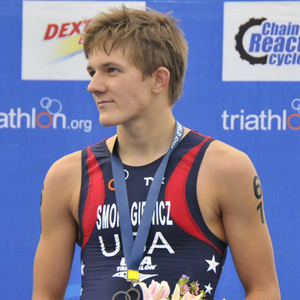
Tony Smoragiewicz is not America's fastest returning American high school runner, as Lukas Verzbicas was coming into his final year of high school.
Tony S is merely America's third fastest returner.
This, according to Milesplit.com's preseason rankings. As of this writing, he sits #3 in Dyestat's national poll as well. At least in the case of Lukas V and Tony S, triathlon isn't harvesting the crop of talented single-sporters. It's the running world scratching its head, wondering how jacks-of-all-trades got so fast afoot.
Slowtwitch: You had a hard time rounding into form for cross this fall. You had a very busy year, and I believe you said you'll have spent more than one day in every four on the road during 2011. It must have been a relief to outduel Jake Leingang last week. He's the number-5 ranked high school runner in the country, a place or two behind you. Do you feel you're rested and ready for the post-season national championship races?
Tony Smoragiewicz: Yes Dan, it was very hard coming back to running after worlds. Not because of switching sports but because of all the travel I did this summer. If I qualify for Footlocker Nationals next weekend, I’ll be gone from home for 96 days since the first of the year. This, along with the 40 hours of flight time in a little over a week and a 14 hour time zone change for World Championships, really caught up with me this cross country season. After a couple of months back in my normal routine I started to finally feel rested. Going into the Nike Heartland regional meet I felt ready to race, but just to be safe I eased up on my training a bit that week. It was great to defend my title and beat Jake. He’s a great kid and has made tremendous improvements since last year. I’m really looking forward to having him on the Heartland team again like last year. I felt regionals was a good measurement of my readiness for nationals. If I do everything right these next couple of weeks, while I focus on the small things, I’m sure I’ll be ready to race Futsum and Edward at Nationals.
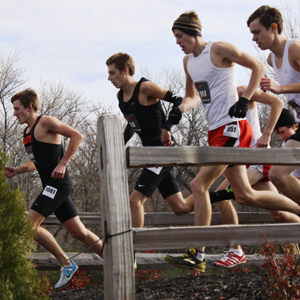
ST: Your toughest competition is likely to be Edward Cheserek, of course, and Futsum Zeinasellassie. Plus, the West region—California and Washington—has some tough runners this year. Is it easy to focus on these very competitive races? Are they anticlimactic compared to racing at Beijing, or are they, in their own way, just as vital and exciting to you?
Tony: Regionals and Nationals are definitely not anti-climatic races compared to World Championships in Beijing. They’re both completely different experiences with very stiff competition every year. It’s very easy for me to become excited for these types of races because it’s what I’ve been training for since the season began. It’s going to be hard to finish my senior year of cross country but on the other side it's fun to finally see who the best is.
ST: It's typical for youth triathlon champions to run track or to swim in the spring, and to run cross-country in the fall, on their high school teams. But it's not typical for triathlete specialists to throw down the way you and Lukas do. Do you think it's harder for you two, because you both are at or near the very top of high school running? By harder, I mean are you torn between being a pure runner versus a triathlete, as Lukas seems to have been?
Tony: Whenever I end a season and move on to a different sport I always think whether it might be best to be a single sport athlete where you can focus on the sport all year long, but it’s easy to question your actions when you’re struggling through your training. But when I look back at my season after my championship race I’m always happy how the season played out. Changing sports throughout the year helps my mind stay fresh and motivated. I enjoy having new challenges to overcome that are presented with each sport I do. It gives me a greater sense of accomplishment and that’s why I never think I will leave the sport of triathlon.
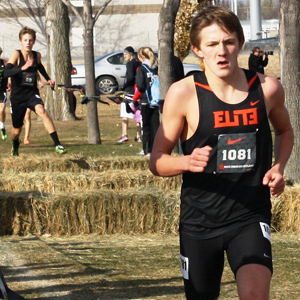
ST: I just wrote a feature about the Elite Triathlon Academy. You've chosen the other route. But, you've chosen a school, in Michigan, on the basis of a good running program, a good swimming program, a running coach who'll allow you to cross train, and also with an eye toward a good engineering program. Do you feel that your decision can be a prototype for those good youth triathletes who do want to nominally go the single-sport route, yet still develop as a multisporter?
Tony: I truly think the University of Michigan is the best fit for me to accomplish my goals as a collegiate runner and as a triathlete and I think it can be a great fit for many other triathletes. I hope other triathletes really look hard for a program that allows them to frequently cross-train and doesn’t sacrifice their wants as a student or as an athlete. I’d be glad if other triathletes came to Michigan because of the opportunities that they’ll receive. The swimming program is the best in the country and the running program is currently on a quick rise to becoming a top team with the help of the relatively new cross country coach, Alex Gibby, whom I’m very excited to race for next year. Another component to my college decision was academics. Michigan is frequently ranked in the top fifteen and is one of the best public institutions in the country. The combination of all of the above is a key to success as demonstrated by Andy Potts. He’s had a career as an accomplished collegiate swimmer and an Olympic triathlete.
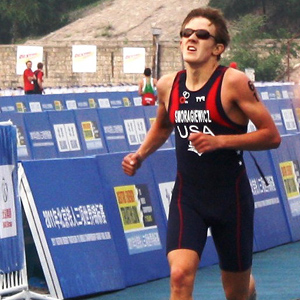
ST: Do you think youth triathletes have built-in advantages over high school runners who are just and only runners?
Tony: I absolutely think triathletes have an advantage over high school runners who just run. Swimming and biking have allowed me to acquire a much larger aerobic base than would ever be possible by only running and also helped to avoid many injuries and setbacks that would come from the high impact of running. Although cross training has been commonly avoided by high school and college running programs, I know that every runner in the nation can benefit from cross training at least once a week. It’s been proven by elite runners such as Alan Webb and Lukas Verzbicas.
ST: I've used to think triathletes aren't really made until they're through college. The so-called sharks and cheetahs talent ID program has always seemed to me the way triathletes ought to be made. But you, and Lukas, and Kevin McDowell, and others, are convincing me that triathletes can be made early, the same way young as swimmers are made. Do you feel that high-performance youth triathlon programs, just like high-performance youth swim teams, represent a solid, healthy, viable way to develop triathletes?
Tony: I think high performance youth triathlon programs are the way to go to properly and successfully develop into an elite triathlete. Just because our nation’s best triathletes didn’t emerge as triathletes until after college, doesn’t mean it’s the way to go. Until recently, post collegiate development was the only viable route to becoming a triathlete but with more and more opportunities opening up to our youth our nation is having a rapid increase in the talent level in the youth and junior rankings. If our country wants to have a higher placing in the future it’s going to begin with identifying and developing young talent. The Brownlee brothers are currently the best in the world and they took a similar route. On the flip side though, I do think kids can start at a very young age and be pushed to their limits and become unmotivated and plateau when they should be making their largest improvements. There’s not a definite age when kids should start but gradually introducing them to the sport and making sure it’s fun is very important to keeping them interested.
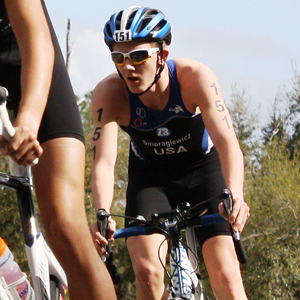
ST: I've always felt every triathlete has a first, or primal, or native sport. Like a native language. But that's because, in my day, we all came to triathlon from a native sport. Do you see your athletics through the prism of one sport? Or, assuming you entered triathlon as a triathlete, are you truly ecumenical and egalitarian in your approach to triathlons three activities?
Tony: Swimming was my first sport. I started when I was eight. My dad was a swimmer in high school and college and did open-water swimming and triathlons after college. That’s how my brother, Tyler, and I got started. Even though I’ve been doing swimming the longest, it’s obviously my weakest sport. Running for me seems to come naturally. As long as I’m swimming and biking, my running can be just fine with just 20 miles a week. Swimming is different though. That’s the one I spend the most time in out of the three and seem to get the least gain. My goal this winter is to turn that around. Although my approach is currently not equal, this winter I’m hoping to be more even with my hours spent between all three. I know I can still make some huge improvements with just being more consistent. My emphasis will still be on running though because it’s the most important leg. It’s where the race is lost or won. This is why I think triathletes need to be part of a collegiate running program where they can further develop their running.


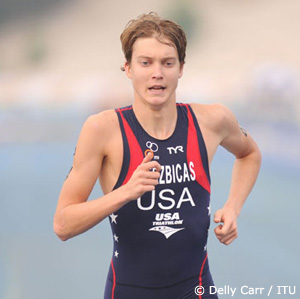
Start the discussion at slowtwitch.northend.network